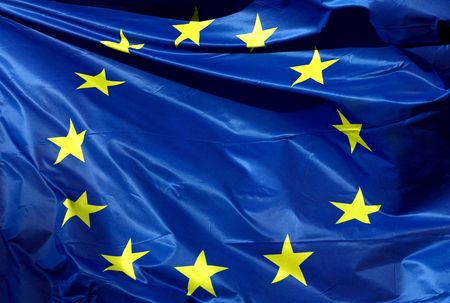By Amanda Cooper
LONDON (Reuters) -Stocks and dollar held steady on Wednesday ahead of U.S. inflation data that could uphold Federal Reserve Chair Jerome Powell’s view that there is no need to rush to cut rates, while a rise in Treasury yields knocked gold back from record highs.
An air of caution among investors kept action across the market subdued, given the uncertainty over U.S. President Donald Trump’s threat last week to impose reciprocal tariffs on any country that applies duties to U.S. imports. His advisers are said to be finalising plans.
Trump on Monday announced 25% tariffs on steel and aluminium up from 10%, with no exceptions, as well as product-specific exclusions, though said he was considering an exemption for Australia.
With the risk that Trump’s tariffs pose to the U.S. and other economies, investors have slowly scaled back their expectations for Fed rate cuts this year, with June being the most likely timing for the next drop.
At his semi-annual testimony to Congress on Tuesday, Powell said little to refute this view, which prompted some traders to take profit on their dollar positions.
“We are in a pretty good place with this economy”, he said, noting that the Fed was in no hurry to make further interest rate cuts, but stood ready to do so if inflation declines further or the job market weakens.
MSCI’s All-World index, which last week hit record highs, was up 0.1%, while in Europe, the STOXX 600 rose 0.2%, helped by upbeat results from Dutch brewer Heineken and UK homebuilder Barratt Redrow
In addition to January’s CPI report, Powell will deliver a second day of testimony on Wednesday.
“Normally the second act doesn’t get as many headlines but there’s a chance today’s CPI may solicit a slightly different tone or encourage different questions. All depends on where the release is relative to expectations,” Deutsche Bank strategist Jim Reid said.
Nasdaq futures were little changed, while S&P 500 futures slipped 0.08%.
TARIFF FATIGUE
Some analysts have said much of Trump’s rhetoric on tariffs appears to be more a negotiating tool, as many of his more aggressive threats have ended up being watered down, delayed or not materialising at this point. This has kept European equities and the euro supported to an extent.
“The challenge for traders is that, despite some fatigue in the Trump trades, there’s no way to predict if tomorrow will be the day Washington significantly expands tariffs. That’s why we’re reluctant to call a meaningful dollar correction without some kind of macro-supporting evidence,” ING strategist Chris Turner said.
The euro was up 0.1% at $1.0373.
The European Union, along with Mexico and Canada, has condemned Trump’s latest round of metal tariffs, with the EU saying the 27-nation bloc would take “firm and proportionate countermeasures”.
U.S. Treasury yields rose on Wednesday, as a selloff following Powell’s testimony extended, pushing the yields on the benchmark 10-year note to a one-week high of 4.556%, which in turn boosted the dollar 0.85% against the Japanese yen to 153.78.
In Asia, Chinese investors’ newfound enthusiasm for artificial intelligence plays showed no signs of slowing.
Hong Kong’s Hang Seng Index jumped 1.83%, lifted by a rally in shares of Alibaba after a media report that it is partnering with Apple to roll out AI features for iPhone users in China.
In commodities, gold fell 0.3% to $2,889 an ounce, under pressure from higher bond yields and Powell’s sense of calm about the need for rate cuts, while oil eased 0.7% to $76.46 per barrel.
(Reporting by Chuck Mikolajczak in New York and Rae Wee in Singapore; Editing by Shri Navaratnam, Kim Coghill and Ros Russell)










